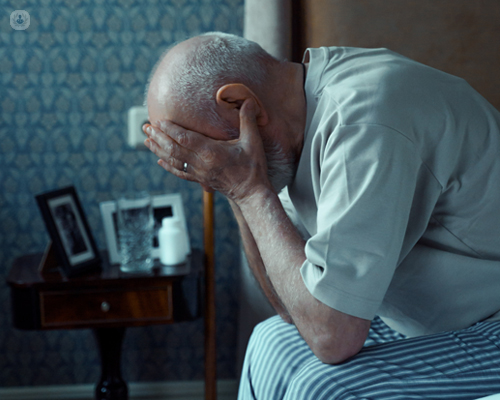Head injuries and mental health: Bridging neurology and psychiatry
Autore:Head injuries can have a profound impact on an individual’s mental and emotional well-being. Often, the effects extend beyond immediate physical symptoms like headaches or dizziness, manifesting as longer-term mental health issues. Understanding the relationship between head injuries and mental health requires collaboration between neurology and psychiatry, two fields that work together to address the full spectrum of consequences following trauma to the brain.

What are head injuries?
Head injuries are any injuries that affect the scalp, skull, or brain. They can range from mild, such as a concussion, to severe, like traumatic brain injury (TBI). Head injuries may occur due to falls, vehicle accidents, sports injuries, or assaults, and the severity of the impact often determines the extent of the damage. Immediate symptoms can include:
- Loss of consciousness
- Dizziness
- Headaches
- Confusion
- Nausea or vomiting
- Memory problems
However, the repercussions of head injuries can also manifest weeks, months, or even years later, particularly concerning mental health.
How do head injuries affect mental health?
The brain is responsible for regulating emotions, cognitive function and behaviour. When the brain is damaged, it can disrupt these functions, leading to various mental health issues. Some of the most common psychiatric symptoms following a head injury include:
- Depression: Studies have shown that individuals who have sustained a head injury are at a higher risk of developing depression. The injury can affect areas of the brain involved in mood regulation, and the stress of coping with physical symptoms may exacerbate feelings of sadness or hopelessness.
- Anxiety: Post-traumatic stress disorder (PTSD) is a common consequence of head injuries, especially those resulting from accidents or violent incidents. Anxiety disorders may also arise due to changes in brain chemistry and structure.
- Cognitive impairment: Traumatic brain injuries can lead to problems with memory, concentration, and problem-solving abilities. This cognitive impairment can, in turn, contribute to anxiety and depression as individuals struggle with day-to-day tasks.
- Irritability and mood swings: Changes in mood, irritability, and anger outbursts are common following head injuries, particularly when areas of the brain that control emotions are affected.
- Personality changes: In some cases, significant changes in personality can occur, which may affect relationships and overall quality of life. Loved ones may notice that the individual becomes more withdrawn, impulsive, or uncharacteristically emotional.
How does neurology approach head injuries?
Neurologists diagnose and treat nervous system disorders, which includes the brain. When it comes to head injuries, neurologists assess the extent of the damage through physical examinations, imaging studies like CT scans or MRIs, and other diagnostic tools. Treatment may involve:
- Medications to control symptoms like headaches or seizures
- Physical rehabilitation to improve mobility and coordination
- Cognitive therapy to address memory or concentration issues
In addition, neurologists monitor patients for the development of neurological complications such as post-concussion syndrome or chronic traumatic encephalopathy (CTE), a degenerative condition associated with repeated head injuries.
How does psychiatry help with the mental health effects of head injuries?
Psychiatrists specialise in diagnosing and treating mental health disorders. When a patient with a head injury presents with psychiatric symptoms, a psychiatrist will work to assess whether these issues stem directly from the injury or if they are part of an underlying mental health condition that has been triggered or worsened by the trauma. Treatment strategies may include:
- Psychotherapy: Cognitive behavioural therapy (CBT) and other forms of talk therapy can help individuals manage anxiety, depression, and PTSD.
- Medication: Antidepressants, anti-anxiety medications, or mood stabilisers may be prescribed to alleviate mental health symptoms.
- Support for cognitive deficits: In cases where cognitive impairment affects a person’s mental health, therapies focusing on improving memory or attention may be recommended.
Psychiatrists often work closely with neurologists to provide a comprehensive treatment plan that addresses both the physical and mental aspects of recovery.
What is the importance of collaboration between neurology and psychiatry?
Head injuries lie at the intersection of neurology and psychiatry, as they can cause both physical and mental health problems. The collaboration between these two specialties ensures that patients receive holistic care that addresses all aspects of their injury. Neurologists can provide insights into how the injury has physically affected the brain, while psychiatrists can manage the emotional and psychological effects. This integrated approach is essential for improving patient outcomes, particularly for those experiencing both neurological and psychiatric symptoms.
Can mental health issues be prevented after a head injury?
While it’s not always possible to prevent mental health problems following a head injury, early intervention can significantly reduce the risk of long-term issues. Recognising the signs of depression, anxiety, or cognitive impairment early and seeking appropriate treatment can prevent symptoms from worsening. Additionally, having a strong support system, participating in rehabilitation therapies, and staying connected with healthcare providers are important strategies for managing the mental health impact of head injuries.
Head injuries can have far-reaching consequences that extend beyond physical damage to the brain. The impact on mental health is often significant, making it essential to bridge the gap between neurology and psychiatry. By working together, these specialties provide comprehensive care that addresses the full spectrum of symptoms, from cognitive impairment to depression and anxiety. Early diagnosis, intervention, and collaboration are key to helping patients recover and manage the long-term effects of head injuries.


